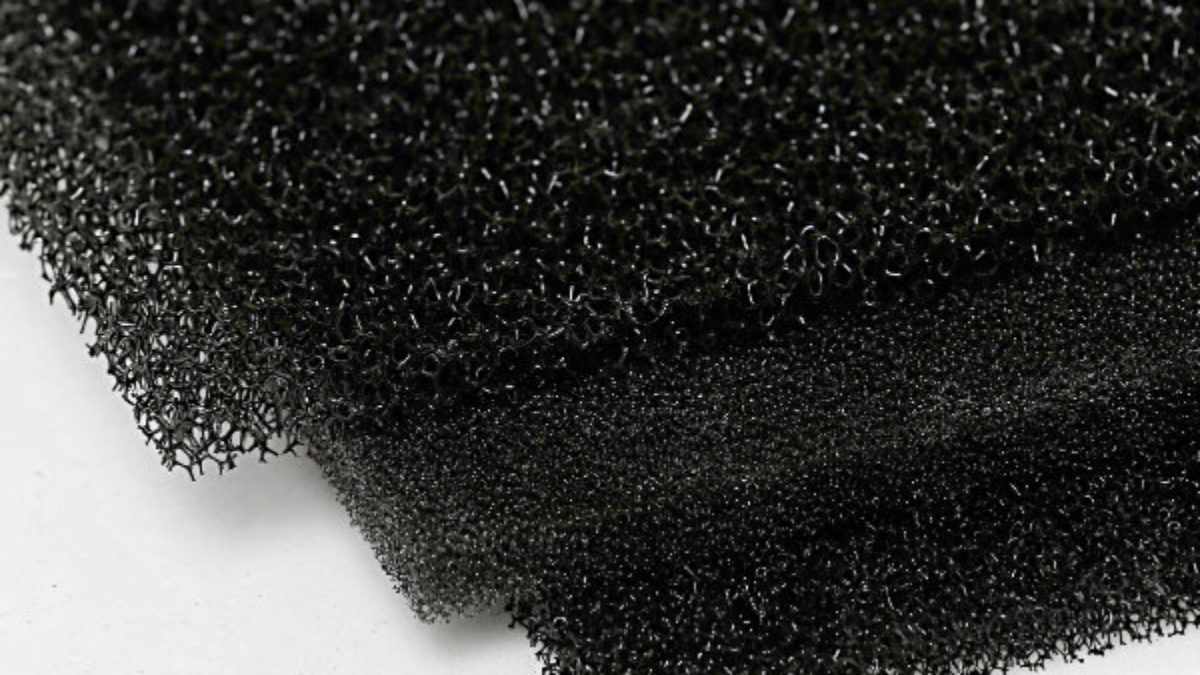Finding the ideal filter foam, whether it is being used for industrial applications or in any other types of products, is essential both for performance, longevity, and overall cost. There are many types of foam on the market, but some are better suited for filtration applications because of their density and strength. If you are looking for filter foam, here is what you need to know about the ideal materials for your application.
Why Foams are a Good Material for Industrial Filtration
Certain types of foam perform exceptionally well in filtration systems because of their durability and permeability. It’s their permeability that allows liquids or solids (depending on the use case) to pass through them while blocking out solid objects and particles, and it’s their durability that makes them a long-lasting solution for filtration applications. This contrasts with foams like neoprene, which is non-permeable and ideal for gasket foam applications.
In general, less dense (open cell) foam is used for filtration because it has a less rigid structure that holds up more over time. However, closed-cell foams can be used depending on the application. The best filter foams will meet the High-efficiency particulate air (HEPA) performance standards.
Other good qualities of filter foams include:
- Low odor
- Lightweight
- Anti-microbial
- High chemical resistance
- High tensile strength
- Elongation and tear-resistant
Different additives can also be added to certain types of filter foam in order to make them flame retardant, antistatic, or static dissipative, depending on how and where the foam will be used.
The Best Types of Filter Foam
Some of the most effective types of foam for filtration are reticulated foam because the reticulation process removes a piece of foam’s cell membranes and impurities. Reticulated polyurethane foam is particularly useful as a filter foam because of its net or lattice-like appearance. This allows the foam to be used in applications like fluid management, cleaning products, combustible engines, air compressors, electronic devices, and in many other industries. There are two types of reticulated foam to choose between: reticulated polyester and reticulated polyether.
Other open-cell foams like ether polyurethane foam and ester polyurethane foam are also good for filtration because of their natural toughness. Find more information on filter foam specifications here.
Looking for a specific type of filter foam for your application? Need custom fabrication to shape a piece of foam to fit a particular space? Get in touch with the foam fabrication experts at Amcon today.


